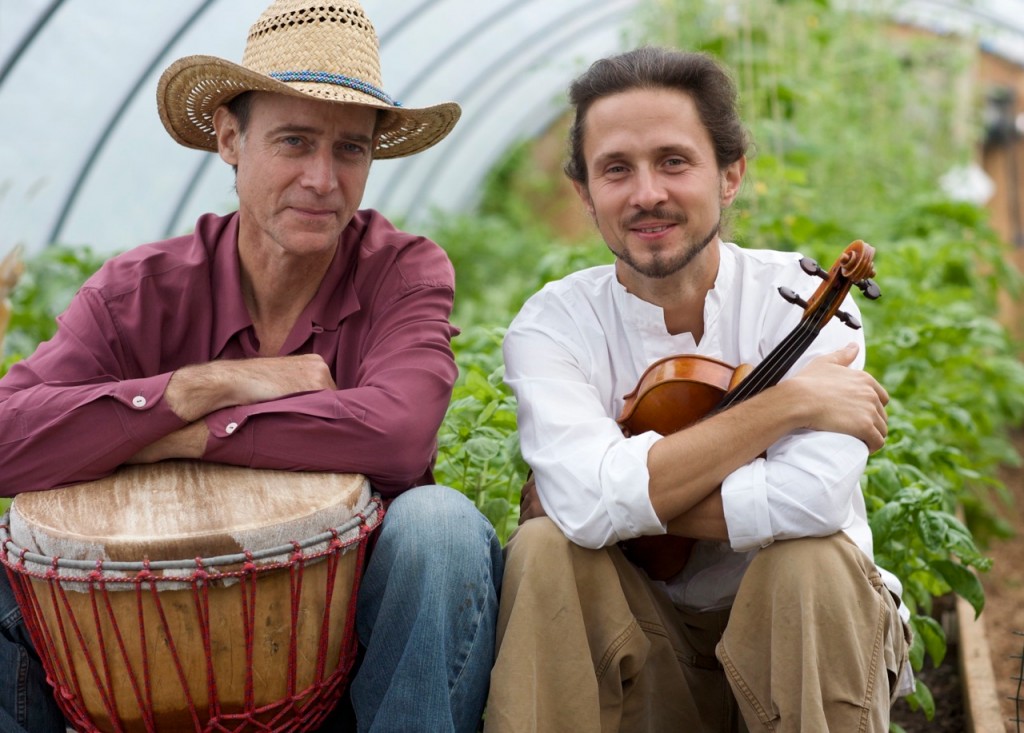
OK here’s my disclaimer right off the bat – YES!, composer and musician John McDowell is my brother. But much more than that, he’s the composer of the original soundtrack to the Academy Award winning documentary Born into Brothels and in his various guises and bands, he’s been heard at Lincoln Center, the UN, the Montreal Jazz Festival, and at many music, dance and theater festivals throughout Europe and North America. He has performed and recorded with artists ranging from Sting, Carlos Santana, and Krishna Das to Rusted Root.
John has been an organic, biodynamic farmer in Rockland County, NY for many years. Now, he brings his interest in music and farming together, thanks to a duo project with Canadian violin virtuoso (and also farmer!) Emmanuel Vukovich, winner of Canada’s first Golden Violin award. Operating under the name Music for Farms, the group has a mission to revive and sustain local organic agriculture and farming communities through the arts.
The duo will weave an evening of music inspired by an exploration of connecting opposites – such as in their original work based on Wolfram von Eschenbach’s Parcifal legend, the meeting of Eastern and Western classical music in their own transcription of Ravi Shankar and Yehudi Menuhin’s Swara Kakali, in their personal backgrounds of jazz and classical music, and finally in their own lives of practicing music and farming side by side.
Upcoming performances in New York and Canada include:
September 18 at the Heliconian Club in Toronto, Canada (As a tie-in to the Toronto International Film Festival’s premiere of documentary film Stolen)
September 20 at Novalis Hall, Angus, Ontario, Canada
October 1 at the Golden Key Society in New York City
The performers will also share some of their experience as farmers and present an excerpt from a film about music and farming entitled Bach in a Barn. Violinist Vukovich states “Originally, music, dance, and artistic culture in general were strongly inter-connected to, and a part of, our human civilization’s relationship to nature. This was expressed in traditional agrarian society through rituals in rhythm with the seasons – such as harvest festivals. As people have migrated more and more to large urban centres, artistic cultural life has tended to separate from agricultural life. We go to concerts in the city, and we get our food from farms in the country. This has often created a void and famine of culture and arts in rural farming communities, and a corresponding disconnect/abstraction in the arts.” To this end, the proceeds from this event will go towards the creation of a foundation which works to connect world-class music-making and artistic culture with local sustainable agriculture and farming communities.

You must be logged in to post a comment.